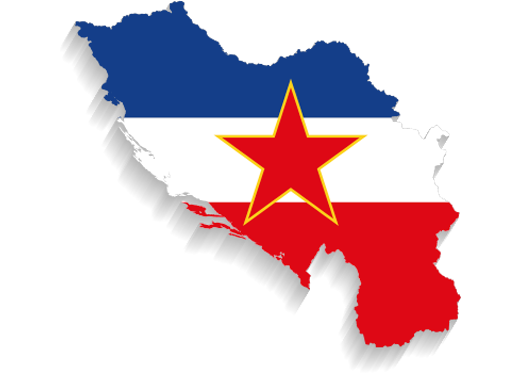(Grant Agreement n. 669194)
During the 1970s, Yugoslavia’s internal debates on the process of European integration, and the European Economic Community (EEC) in particular, involved a limited number of actors and institutions. The country’s early opening to the EEC, which took place in the 1960s, had spurred intense debates within the League of Communists of Yugoslavia (Savez Komunista Jugoslavije, SKJ), the Federal Executive Council (Savezno izvršno veće), the academic elite and state-led research institutes. Once the ideological aspect of the question was solved with the decision to develop a pragmatic approach to the Community and establish direct diplomatic relations with it in the late 1960s, the ‘public’ dimension of the EEC question lost momentum and the management of relations with the Community was entrusted to a limited number of actors, mainly within the Federal Foreign Trade Secretariat (Savezni Sekretarijat za Spoljnu Trgovinu), the Federal Foreign Affairs Secretariat (Savezni Sekretarijat za Inostrane Poslove), and the Federal Executive Council.
However, this does not mean that Yugoslavia’s position with regard to the EEC was treated as a neutral subject within the state apparatus: throughout the 1970s, debates on this subject concerned the final goal of relations with the Community. In the early 1970s, after the end of the ‘liberal’ period which had been marked by a process of market-oriented industrialisation in the country, a divergence emerged between those who advocated a political relationship with the Community and those who instead focused on the economic and commercial dimensions. Among the former were the leadership of the party, including Josip Broz ‘Tito,’ Edvard Kardelj and Vladimir Bakarić. These people insisted on Yugoslavia’s status as a non-aligned country and part of the ‘developing world,’ which in turn implied that the country should be assisted by its Western European partners through the EEC’s Generalised Scheme of Preferences, which offered developing countries financial aid from the European Investment Bank and ad hoc commercial concessions in derogation of the EEC’s protectionist rules. Instead, the economic dimension of relations with the Community was the concern of the republican leaderships, particularly in Croatia and Slovenia, whose chambers of commerce and representatives in the Federal Executive Council focused on the need to foster economic cooperation with the EEC in various fields, including industry, agriculture, tourism and finance. Eventually, the ‘political’ approach espoused by the party leadership and the presidency of the Federal Executive Council (in particular, Džemal Bijedić and Veselin Djuranović) prevailed.
From the mid-1970s onwards, with the passing of commercial competences to the republics and autonomous provinces after the adoption of the 1974 ‘confederal’ constitution, the federal government mainly focused on the political dimension of relations with the EEC, and a comprehensive federal economic strategy to enhance the country’s economic competitiveness in the eyes of the EEC was not pursued. Yugoslavia therefore entered a ‘dependency path’ in its EEC relations, linking its balance of trade to the EEC’s willingness to implement commercial measures in its favour. All in all, no major opposition emerged against this political approach, as the individual federal republics and autonomous provinces adopted a de facto free-ride policy of uncontrolled imports from the Western European credit and commodity markets, which in turn increased Yugoslavia’s dependence on the EEC. Research institutes such as the Institute for International Politics and Economy (Institut za Medjunarodnu Politiku i Privredu) and the Institute for Foreign Trade (Institut za Spoljnu Trgovinu) did not cast doubts on this policy dependency, but rather sponsored the official federal policy. At the same time, academic journals (from Politička Misao to Medjunarodni Problemi) limited their analyses to sectoral fields without affecting the overall federal strategy towards the EEC. Only in the late 1980s, due to the economic crisis at the federal level and the acceleration of integration in Western Europe through the launch of the single market project, did a veritable public debate on the EEC re-emerge within the country.
* All the texts about Yugoslavia posted here summarise the research findings of PanEur1970s team member Benedetto Zaccaria, which are published as Benedetto Zaccaria, “From Liberalism to Under-Development: The Yugoslav Elites Facing Western European Economic Integration in the Long 1970s”, in Angela Romano and Federico Romero (eds), European Socialist Regimes’ Fateful Engagement with the West: National strategies in the long 1970s (Routledge 2020).
